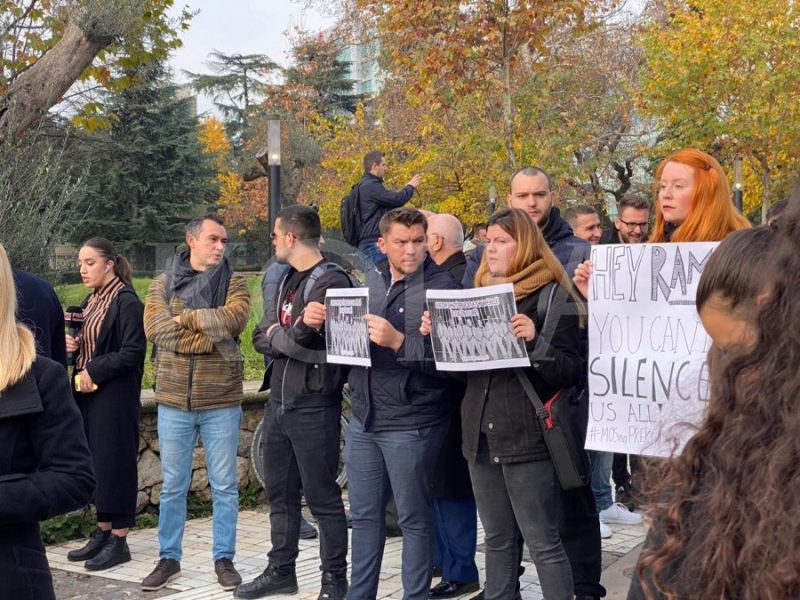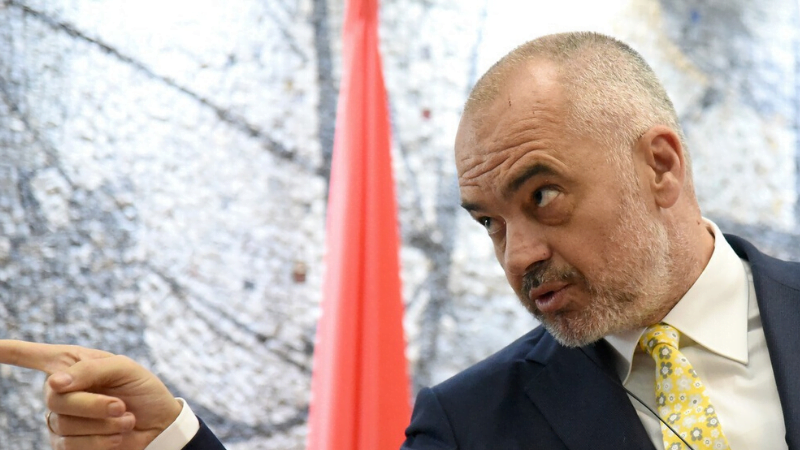The Albanian government has passed two laws that will bring online news portals under State control despite heavy criticism from the OSCE, EU, international media organisations, the Council of Europe and journalists worldwide.
The legislation was approved by the Law Commission on Monday and was then passed before the Socialist Party majority parliament on Wednesday evening, following protests from journalists and civil society.
The so-called “anti-defamation” packages drafted by Prime Minister Edi Rama’s Socialist Party create a mechanism under which online media can be blocked within the country and its owners fined up to €830,000 without any judicial process.
Portals operating in Albania, or from outside Albania but that focus on Albanian news, will both be subject to the law.
The new law defines criticism of “political or other beliefs” as hate speech, meaning that any journalist criticising the ruling party could be affected. Portals publishing anything that can be an “alleged violation” of “the country’s interest” or “public security” can fall under the new law through vague definitions that many fear will be used to silence any critical voices.
Those found violating the law will be judged by a non-judicial panel, appointed by the Socialist Party government, that will have the power to block access to the portal, force ‘corrections’ to be published in pop-up format, force removal of content and impose fines that could bankrupt media or individuals.
The law also means that penalty measures would be imposed immediately before any prior judicial or administrative decision or appeal. Subsequent appeals could take years, interfering with the operation of news portals and the finances of those running and working for them.
Rama has a well-publicised dislike of the media, brandishing them “enemies” and “trashcans“. Yesterday during a speech before the law was passed, he called journalists “illiterate”, “human rights abusers”, “fakes”, and likened them to prostitutes. He has also stopped holding public press conferences and runs his own TV Station ERTV that provides carefully curated news coverage of government activities.
Journalists working in the country regularly come under verbal, online, judicial, administrative, and even physical attack and many practice self-censorship out of fear.
Albanian law already provides both civil and criminal recourse for defamation and local journalists argue that there is no need for additional legislation.

Journalists have been protesting against “draconian” media laws, passed by strongman Prime Minister Edi Rama
Journalists and members of civil society protested in front of the Albanian Parliament, with black scarves over their mouths to symbolise the way the government is silencing them. They held placards saying “journalists are not criminals” and “you can’t silence us all”.
Rama took to Twitter shortly after the protest was announced to imply that his draft laws had been written with the Organisation for Security and Co-operation in Europe (OSCE) and were in line with international freedom of expression standards. Yet, the most recent OSCE legal review published by the office of Harlem Desir, the Representative on Media Freedom, stated that several provisions were not in line with international standards.
In the report, Desir said that further changes needed to be made to “clarify safeguards to freedom of expression and avoid any risk of undue restrictions or sanctions on electronic media providers.”
Last week, the European Centre for Press and Media Freedom, ARTICLE 19, European Federation of Journalists, South East Europe Media Organisation, International Press Institute, Reporters Without Borders, and Committee to Protect Journalists called on parliament to drop its “dogged pursuance” of the draft laws.
In their statement they reminded Albanian authorities of their obligations under the European Convention on Human Rights and the OSCE, noting that “the proposals are not in line with best practices on self-regulation and would have an adverse impact on freedom of expression in Albania.”
Journalists in Tirana plan to continue opposing the legislation by appealing to Albanian President Ilir Meta to throw out the proposed law, challenging it in the Constitutional Court, and taking it to the European Court of Human Rights if necessary.
In the meantime, any portal or journalist publishing investigations, criticisms, or scandals relating to the government will work in fear of being blocked, shut down, or fined.
In 2017, Maltese Prime Minister Joseph Muscat’s Labour government tried to introduce a similar law that would require mandatory registration of online news portals, but it was dropped after widespread controversy and criticism from the EU.
Alice Taylor reporting from Tirana, Albania












